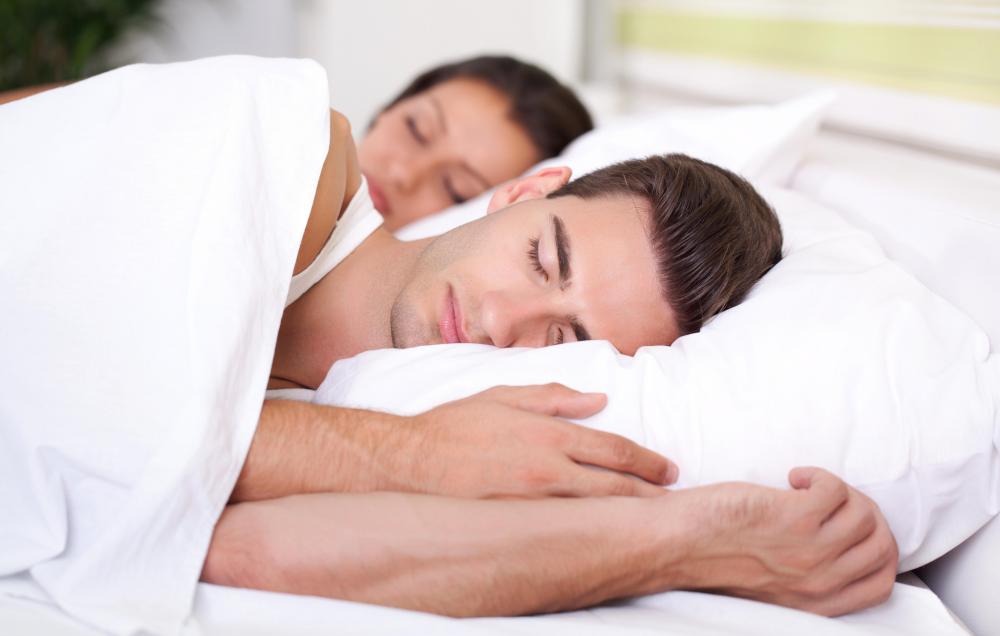At WiseGEEK, we're committed to delivering accurate, trustworthy information. Our expert-authored content is rigorously fact-checked and sourced from credible authorities. Discover how we uphold the highest standards in providing you with reliable knowledge.
What is Sleep Bruxism?
Sleep bruxism is when someone grinds, gnashes or clenches his or her teeth while sleeping. It is the third most common sleep disorder behind talking while sleeping and snoring. Those who suffer from sleep bruxism often awaken with a headache or pain in the jaw, ear or face. Other symptoms include chewed tissue on the inside of the cheek, indentations on the tongue, damaged teeth, earaches and tooth sensitivity. Sleep bruxism does not always occur in isolation, and sleep studies have shown that those living with the disorder might also suffer from obstructive sleep apnea, or pauses in the breathing during sleep.
Experts are unclear about what specifically causes sleep bruxism, but many believe stress and anxiety to be the main culprits, along with misalignment of the upper and lower teeth, smoking, alcohol and caffeine. If the condition is not treated, it eventually can lead to the wearing down of teeth, muscle tension, muscle spasm and stress on the temporomandibular joint. In extreme cases, jaw surgery might be necessary.

Generally occurring during the early stages of sleep, sleep bruxism disrupts a person’s sleep. The condition also can cause strained relationships with those in close proximity to the sufferer. The resulting noise from the grinding of teeth during sleep bruxism has been described as being “like nails on a chalkboard.”
Sufferers of this condition have tried remedies such as exercise, yoga, hypnotherapy and acupuncture, with varying degrees of success. Reducing daytime stress, getting an adequate amount of sleep at night and sticking to a soothing nighttime routine also can help. Experts warn that anti-anxiety and antidepressant drugs generally are not effective in reducing the grinding. Dentists often recommend that a person suffering from sleep bruxism should use a fitted mouth guard that doesn’t prevent the user from grinding or clenching of the teeth but protects the teeth from further damage. When the condition is present in children, parents should discuss sleep bruxism symptoms with a medical professional.
AS FEATURED ON:
AS FEATURED ON:














Discuss this Article
Post your comments